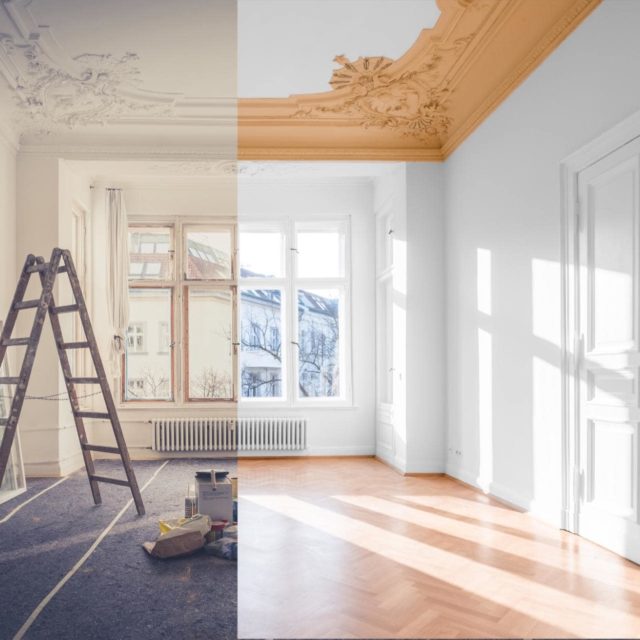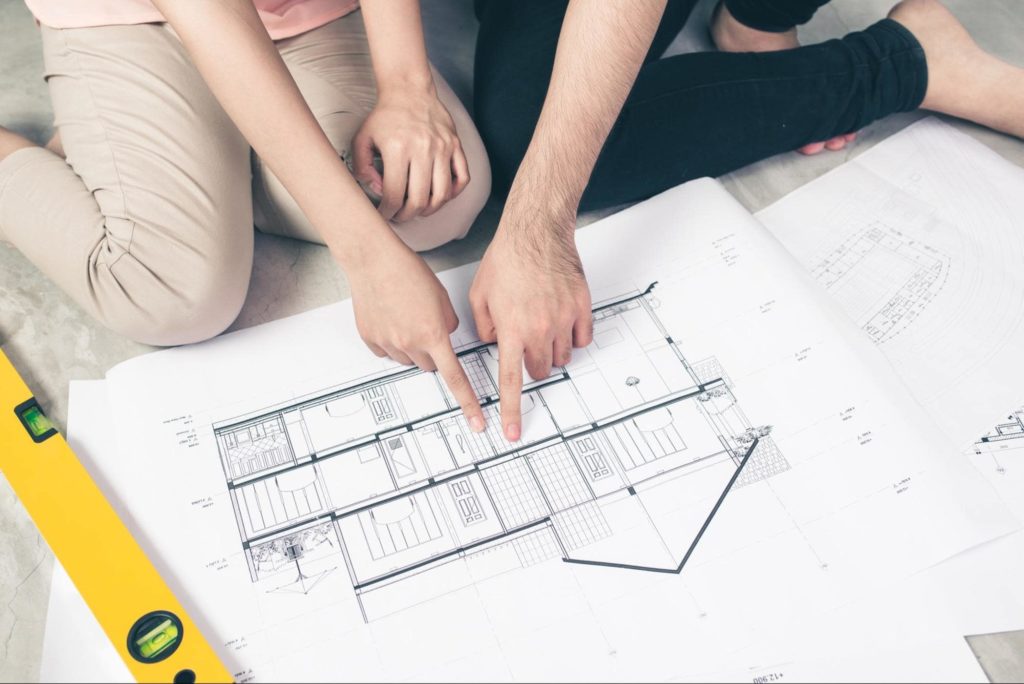When is the Best Time to Renovate a House?

- Written by: jlbmdev

The best time to renovate a house is when you feel willing and ready to undertake the project. With all the moving parts, home renovation and design can be equal parts exciting and stressful if you’re not in the proper mindset.
But if you’re a homeowner who’s thought about it long enough and are ready to turn your home remodeling ideas into reality, this blog will explore the best times of the year to tackle certain projects, how to plan for a major renovation, and how to stay in-budget and on-trend after a brand new home renovation.
The bulk of the home improvement process rests upon (1) what you need renovated, (2) your budget, and (3) how early you need the project completed. Planning an initial project scope, budget, and timeline may feel like it’s taking the fun out of house design renovation, but it will help make the project flow much smoother in the long run.
Before we dive into the best time to renovate a house based on what projects to tackle in which seasons, let’s create a list of home renovation tips to make sure you’re on the right track from the start.

Before we dive into the best time to renovate a house based on seasonality, it’s important to create a list of what you’re hoping to accomplish with your home renovation. This can include everything from your favorite home remodeling tips and ideas and interior remodeling and house alteration plans to the more logistical elements, like scheduling and budget.
The first step to any successful remodeling project is to develop a plan that lists your goals for the renovation. Your project plan may include:
When to Start: 6 to 12 months before you’d like to begin your project.
After you’ve created a rough plan, the next step is thinking about finances. When setting a budget, you should include the costs of building materials, labor, permits, and even decorations or cosmetic touches. To create a home renovation budget, you’ll want to think of the following:
When to Start: 3 to 6 months before beginning your project.
Finding a team of trusted contractors is one of the most important steps. When interviewing and selecting your contractors, you’ll want to consider the following:
When to Start: 2 to 3 months before your start date.
Once the budget and team are in place, it’s time to talk about the timeline. If you’re really focused on choosing a specific date to have your project completed by, pick an end date and work backward from there. Consult your contractors and discuss which steps of the remodel need to be completed first and how long each step will take.
When to Start: 2 to 3 months before your start date.
As the initial stages of planning come to an end, it’s important to get down to the nitty-gritty of what the renovation process will look like. You’ll want to think about whether or not you should live in your home during construction. If so, you’ll want to make a plan on what to do when your kitchen or bathroom(s) are out of service for a few days or weeks.
When to Start: Make plans 2 to 3 months before your start date and pack up and move 1 to 2 weeks before your start date.

After you’ve created a preliminary list and know what projects you’re hoping to tackle, it’s time to turn your attention to the best times of year to complete each of those projects.
If you’re someone who likes to get the big items checked off their list first, then focusing on any additions you’d like to add to your home is a good place to start. The most optimal time of year for house renovation projects is actually January through early March. While this sounds counter-intuitive, the frozen ground and dry air can make it easier for contractors to pour concrete.
When to start: January through early March.
Looking for a new front porch or a backyard deck to host some summer cookouts? Outdoor projects are typically best completed in April through August. While there’s certainly flexibility to this timeline, if your project requires the installation of a new structure, deck, or patio, contractors will be halted when temperatures are below freezing and the ground becomes too hard to dig.
When to start: April through August.
One thing any home can’t function without is a working bathroom. But since the summer months are prime vacation time for many families, house refurbishment ideas like bathroom remodels often make sense during the time of year you’re away from your home the most. By scheduling your home’s bathroom remodels during July through September, you can better avoid the annoyance of being without a bathroom or two.
When to start: July through September.
One of the best times of year for a kitchen remodel is usually the end of the year just before the holidays approach. Contractors’ workflows are often slower around this time (compared to spring and summer), and building materials may be more affordable around this time of year, depending on supply and demand.
Wondering how to estimate home remodeling construction costs? This is going to depend on the type of house you have and its estimated value. According to The National Association of Home Builders (NAHB), you should only look to spend a certain percentage of your home’s total value based on the room or upgrade. Below is the NAHB’s suggested spend (based on home value):
If you’re looking to completely renovate your house, the average cost in the U.S. can range from $15,000 – $200,000. Depending on the type of home and the renovation, prices can vary dramatically. The final “price tag” after a renovation is dependent upon structural or mechanical repairs, square footage, underlying issues, location, and materials used.
For many homeowners thinking about the best ways to renovate a house, $15,000 can sound steep, let alone a couple hundred thousand dollars. When dealing with large residential construction and remodeling projects, homeowners often take out a construction or renovation loan, which entails refinancing with a mortgage that reflects the house’s estimated value post-remodel.
Many lenders provide mortgages that cover up to 80 or 85 percent of the remodeled home’s value. Using home equity for renovations is not uncommon, but it’s always important to consult with a financial expert before taking on major loans.